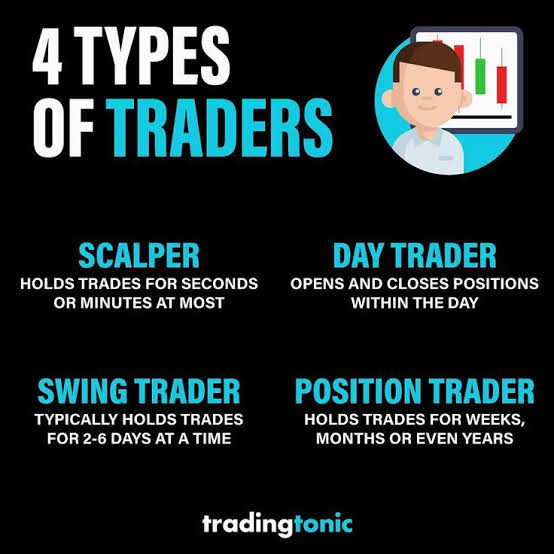The stock market is a complex and dynamic financial marketplace that offers a wide range of opportunities for traders. In this blog, we'll take a closer look at the various types of trades that are available in the stock market.
Day Trading: This is a type of trading where a trader buys and sells stocks within the same trading day. Day traders aim to make quick profits by taking advantage of market volatility and price movements. Day traders typically use technical analysis and high-frequency trading algorithms to execute trades.
Swing Trading: Swing trading is a medium-term trading strategy that involves holding a stock for several days to a few weeks. Swing traders aim to capitalize on the short-term price movements of stocks and look for opportunities to buy low and sell high. Swing traders typically use technical analysis and trend-following strategies to make informed trading decisions.
Position Trading: Position trading is a long-term trading strategy that involves holding a stock for several months to a year or more. Position traders focus on the fundamentals of a stock and aim to take advantage of its long-term growth potential. They look for stocks with strong financials, a solid track record of earnings growth, and a favorable outlook for the future.
Scalping: Scalping is a high-frequency trading strategy that involves making multiple trades in quick succession. Scalpers aim to make small profits from tiny price movements by exploiting price discrepancies and inefficiencies in the market. Scalping is a highly speculative trading strategy that requires a lot of skill and experience to execute effectively.
Options Trading: Options trading is a type of trading that involves buying and selling options contracts. An option is a contract that gives the buyer the right, but not the obligation, to buy or sell a stock at a specified price. Options traders use a variety of strategies to take advantage of market volatility, including buying call options to bet on rising stock prices and buying put options to bet on falling stock prices.
Futures Trading: Futures trading is a type of trading that involves buying and selling futures contracts. A futures contract is an agreement to buy or sell a stock or commodity at a specific price on a specific date in the future. Futures traders use leverage to take advantage of market movements, and can either bet on rising or falling prices.
In conclusion, there are many different types of trades that traders can make in the stock market. Whether you're a day trader looking to make quick profits, a position trader focusing on long-term growth, or an options trader looking to take advantage of market volatility, there's a type of trading that's right for you. Regardless of your trading strategy, it's important to have a solid understanding of the stock market and the risks involved in trading, as well as to have a well-designed risk management plan in place

Comments
Post a Comment